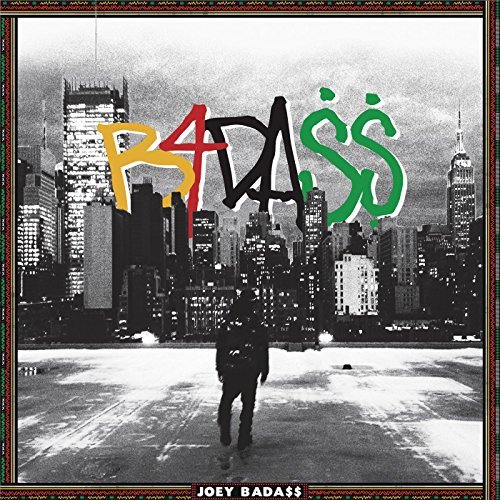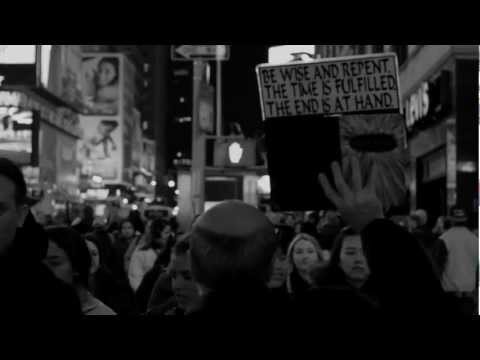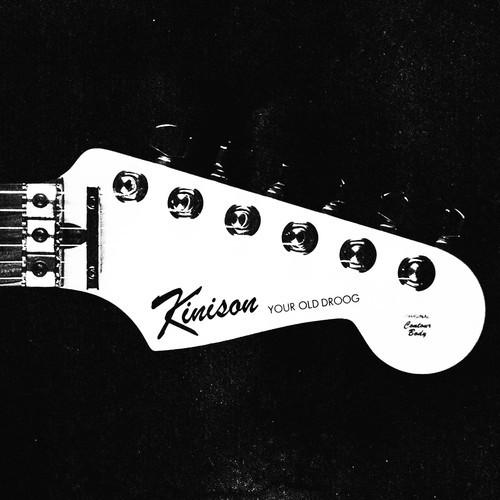
With ten years in the game and five full-length albums to its name, Jedi Mind Tricks has proven to be one of underground hip-hop’s most consistent and successful groups. Still, for much of its existence, the duo consisting of emcee Vinnie Paz and producer Stoupe has been referred to as a one-trick pony. While there’s no debating the talent of Stoupe - a producer who is amongst the profession’s elite - Paz has been stereotyped as nothing more than a sadistic rapper; an emcee relying entirely on his coarse, unrefined delivery and vicious, war-infused content. Of course, there’s nothing wrong with creating a niche within the genre. The problem lies in the fact that over the group’s past two efforts, Visions of Gandhi and Legacy of Blood, the formula has become stale and predictable. However, JMT’s latest offering, Servants in Heaven, Kings in Hell, is a surprising breath of fresh air.
The group’s fifth release is still littered with what listeners have grown accustomed to - desolate, sometimes gruesome, braggadocio, mashed up with anti-pious rants and half-hazard political intellectualism, all the while over beautiful, dark, well-constructed production. What separates Servants from previous efforts is the emergence of real depth in Paz’s lyrics. Although he gave us a brief look at his ability on Legacy of Blood (see “Before the Great Collapse”) never before has Vinnie Paz displayed such versatility and maturity. On “Shadow Business”, he confronts Asian slave labor head-on in painful detail: “The slave master only let them speak in sign language / plus they suffering from lung disease and eye damage / fourteen hour shifts seven days a week / two shitty meals a day very little sleep.” Backed by Stoupe’s despairing simplicity, complete with actual media excerpts pertaining to the topic at hand, the song is a sharp, and a welcome, contrast to what we’ve come to expect from JMT. That approach continues with “Razorblade Salvation”, which serves as a follow-up to “Before the Great Collapse”. This time, Paz’s letter to his mother focuses on beating depression, rather than succumbing to it. The album’s chef d’oeuvre, “Uncommon Valor: A Vietnam Story”, maintains the same strong conceptual feel, but in an even more poignant manner. The song, featuring the often-overlooked R.A. the Rugged Man, offers first-person recollections from soldiers with contrasting views. Over a haunting vocal sample, Paz delivers possibly the most introspective verse of his career: “My mother always said, ‘The president, he doesn’t care’ / He tryin’ to leave the footprints of America here.” Even so, he’s outshined by R.A., who conjures up what may be the verse of the 2006. As a brash, somewhat demented, solider, he weaves an epic account of cause and its effect.
For those still harboring affection for JMT’s roots, there is plenty to satisfy. The album’s lead single, “Heavy Metal Kings” features a tormenting verse from Ill Bill and production that resembles a Victorian nightmare. The strings of “Put ‘Em In The Grave” hark memories of Little Italy, while “Gutta Music”, which features Reef the Lost Cauze and Chief Kamachi, is something to ride out to. “Outlive the War” is another notable endeavor, incorporating flamenco-inspired castanets and tambourines into a vivacious backdrop.
But even these tracks exhibit a more mature and established Vinnie Paz, making it quite clear “the Verbal Hologram” may have finally taken the next step. With Servants in Heaven, Kings in Hell, Paz has struck a keen balance between street and social awareness. Couple that with a Stoupe soundscape, which is rarely disappointing, and JMT has created its finest work since Violent By Design.
Comments
No Comments
Leave a reply
- Raekwon Sets A Release Date For “F.I.L.A.” Album
- BUSH: A Snoop Odyssey Produced By Pharrell Williams [Preview]
- Drake – “If You’re Reading This It’s Too Late” Surprise Album on iTunes Now
- Action Bronson “Mr. Wonderful” Cover Art and Tracklist
- Juicy J “Blue Dream & Lean 2″ Mixtape Cover Art & Release Date Revealed
- MF Grimm “MF Love Songs” Cover Art + Tracklist
- Lord Hakim – “Brass Knucklez” (feat. Vast Aire & Phizz Ed)
- IAMSU! – “Hella Good” (feat. Tyga)
- DJ Kay Slay – “I Declare War” (feat. Styles P, Sheek Louch, Vado, Raekwon, & Rell)
- Maverick Sabre – “We Don’t Wanna Be” (feat. Joey Bada$$)
- Cannibal Ox – “Blade: Art of Ox” (feat. Artifacts & U-God; prod. Black Milk)
- Asher Roth – “Blow Your Head” (prod. Nottz)
- It's Time To Say Goodbye...
Commented on by Yungplex - It's Time To Say Goodbye...
Commented on by geedubbleyoo - Fat Trel - "In My Bag" (feat. Wale)
Commented on by Katae - Kanye West's "Runaway": What Does It All Mean?
Commented on by fidgar - Sole Vs. El-P: Part One - Sole
Commented on by Reno Yakavetta - It's Time To Say Goodbye...
Commented on by Atom














 Mixtape D.L.
Mixtape D.L.




















17 December, 2006@12:00 am
0 comments